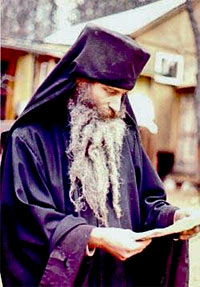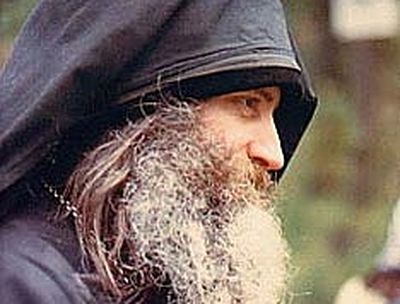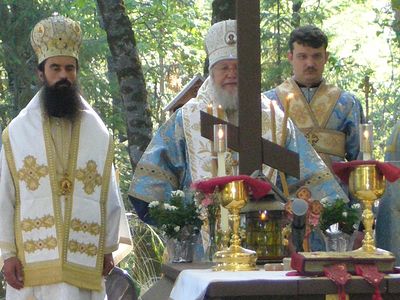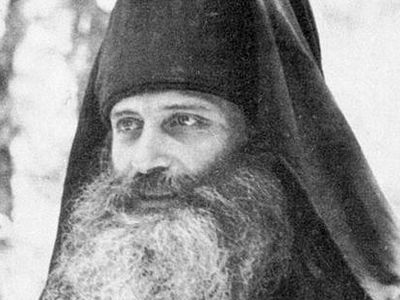 Hieromonk Seraphim (Rose)
Hieromonk Seraphim (Rose)
|
| Hieromonk Seraphim (Rose) |
A talk delivered by Hieromonk Seraphim (Rose) at the St. Herman Pilgrimage, August 1982, St. Herman of Alaska Monastery, Platina, California.
Introduction (MP3 file, 4:58 min. 4,62 Mb) download >>
Before beginning my talk, a word or two on why it is important to have an Orthodox world-view, and why it is more difficult to build one today than in past centuries.
In past centuries — for example, in 19th-century Russia — the Orthodox world-view was an important part of Orthodox life and was supported by the life around it. There was no need even to speak of it as a separate thing—you lived Orthodoxy in harmony with the Orthodox society around you, and you had an Orthodox world-view provided by the Church and society. In many countries the government itself confessed Orthodoxy; it was the center of public functions and the king or ruler himself was historically the first Orthodox layman with a responsibility to give a Christian example to all his subjects. Every city had Orthodox churches, and many of them had services every day, morning and evening. There were monasteries in all the great cities, in many cities, outside the cities, and in the countryside, in deserts and wildernesses.
In Russia there were more than 1,000 officially organized monasteries, in addition to other more unofficial groups. Monasticism was an accepted part of life. Most families, in fact, had somewhere in them a sister or brother, uncle, grandfather, cousin or someone who was a monk or a nun, in addition to all the other examples of Orthodox life: people who wandered from monastery to monastery, and fools-for-Christ. The whole way of life was permeated with Orthodox kinds of people, of which, of course, monasticism is the center. Orthodox customs were a part of daily life. Most books that were commonly read were Orthodox. Daily life itself was difficult for most people: they had to work hard to survive, life expectancy was not great, death was a frequent reality — all of which reinforced the Church’s teaching on the reality and nearness of the other world. Living an Orthodox life in such circumstances was really the same thing as having an Orthodox world-view, and there was little need to talk of such a thing.
Today, on the other hand, all this has changed. Our Orthodoxy is a little island in the midst of a world which operates on totally different principles — and every day these principles are changing for the worse, making us more and more alienated from it. Many people are tempted to divide their lives into two sharply distinct categories: the daily life we lead at work, with worldly friends, in our worldly business, and Orthodoxy, which we live on Sundays and at other times in the week when we have time for it. But the world-view of such a person, if you look at it closely, is often a strange combination of Christian values and worldly values, which really do not mix. The purpose of this talk is to see how people living today can begin to make their world-view more of one piece, to make it a whole Orthodox world-view.
Orthodoxy is life. If we don’t live Orthodoxy, we simply are not Orthodox, no matter what formal beliefs we might hold.
Life in our contemporary world has become very artificial, very uncertain, very confusing. Orthodoxy, it is true, has a life of its own, but it is also not very far from the life of the world around it, and so the life of the Orthodox Christian, even when he is being truly Orthodox, cannot help but reflect it in some way. A kind of uncertainty and confusion have also entered into Orthodox life in our times. In this talk we will try to look at contemporary life, and then at Orthodox life, to see how better we might fulfill our Christian obligation to lead other-worldly lives even in these quite terrible times, and to have an Orthodox Christian view of the whole of life today that will enable us to survive these times with our faith intact.



